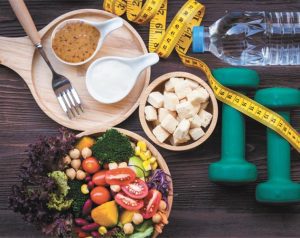By Dr. linell king
 High blood pressure (hypertension) is called the “silent killer” for good reason. It often has no symptoms but is a major risk of heart disease and stroke. And these diseases are among the leading causes of death in the United States.
High blood pressure (hypertension) is called the “silent killer” for good reason. It often has no symptoms but is a major risk of heart disease and stroke. And these diseases are among the leading causes of death in the United States.
Almost half of U.S. adults have high blood pressure.
Your blood pressure is measured in millimeters of mercury, which is abbreviated as mm Hg. There are two numbers involved in the measurement:
• Systolic blood pressure. The top number represents the force of the pressure when your heart pushes blood into the arteries throughout the rest of your body.
• Diastolic blood pressure. The bottom number represents the pressure in your blood vessels between beats, when your heart is filling and relaxing.
Your blood pressure depends on how much blood your heart is pumping, and how much resistance there is to blood flow in your arteries. The narrower your arteries, the higher your blood pressure.
Blood pressure lower than 120/80 mm Hg is considered normal. Blood pressure that’s 130/80 mm Hg or more is considered high.
If your numbers are above normal but under 130/80 mm Hg, you fall into the category of elevated blood pressure. This means you’re at risk of developing high blood pressure.
The good news about elevated blood pressure is that you can make changes to significantly reduce your numbers and lower your risk — without requiring medications.
Here are some tips for making lifestyle changes for treating blood pressure through healthy eating and physical activity.
Eating healthy. One lifestyle change that can help lower blood pressure is the DASH eating plan. DASH stands for Dietary Approaches to Stop Hypertension. The DASH eating plan is high in fruits, vegetables, and low-fat dairy products. The Dash plan also includes whole grains, poultry, fish, beans, nuts and seeds, and has low amounts of total fat, saturated fats, red meats, sweets, and sugared beverages. Researchers believe that it is the combination of 8 to 10 servings a day of fruits and vegetables and 3 servings of low-fat or nonfat dairy products that causes the DASH eating plan to lower blood pressure. These foods are low in sodium and high in calcium, potassium, and magnesium which can lower blood pressure. It is best to get these nutrients from eating foods, because taking calcium, potassium, and magnesium supplements does not have the same synergistic effect.
The DASH plan is a healthy way of eating for everyone, but especially if you want to prevent high blood pressure and other health problems.
Getting regular physical activity. You don’t have to train for a marathon to get all the benefits of physical activity. Find an activity that you enjoy and make it part of your daily routine. The Department of Health and Human Services’ Physical Activity Guidelines recommend building up to at least 150 minutes of activity each week – that’s 30 minutes a day, five days a week.
Do aerobic activities for at least 10 minutes at a time. Aerobic activities are walking, running, swimming, cycling, rowing, anything that gets you breathing harder and your heart beating faster. If you haven’t been active for a while, start with a low, comfortable level, but slowly build in intensity and length of time of the activity.
There are DVDs available that you may use to walk or be physically active indoors in any weather and at any convenient time of day or night. Your physical activity may become a special time to not only refresh your body, but relieve your mind of stressful thoughts. Coping successfully with stress is another lifestyle method for controlling high blood pressure.
If you have a heart problem or a chronic disease, it is always a good idea to talk with your healthcare provider about increasing your physical activity level. Usually, they are happy to see that you are choosing a more active lifestyle.
Lifestyle modifications can significantly help improve blood pressure:
• Eating strategy: prioritize whole foods and get plenty of vegetables, limit or avoid processed foods
• Sleep: 7-8 hours every night
• Stress: address chronic stressors, meditation, yoga, walking in nature, journaling, etc.
• Exercise/movement: intentional movement 30 minutes per day
• Community: Get friends and/or family involved!
If you find yourself in the category of needing a higher level of treatment for your high blood pressure, keep in mind that lifestyle changes, especially increased physical activity and healthier eating patterns, are worthwhile to your overall well-being, whether or not you are prescribed medication for treatment of your high blood pressure.
Call 239-465-0098 to reserve a free 15 minute consultation call with our team to discuss your personalized success strategy.
www.naplesvitality.com/consult
Linell King MD, renowned internist and author of “Mastering Vitality” received his medical degree from the University Of Wisconsin School Of Medicine, and completed his residency at The Johns Hopkins University Sinai Hospital Program of Internal Medicine. He has been practicing for twenty years; currently at his “Naples Vitality” office in Naples, FL.
Our practice size is limited to ensure the best possible care for our clientele; we qualify and accept patients committed to working collaboratively to create improved health and continued success.
239-465-0098
www.Naplesvitality.com
3411 Tamiami Trail N. Suite 200
Naples, FL 34103









